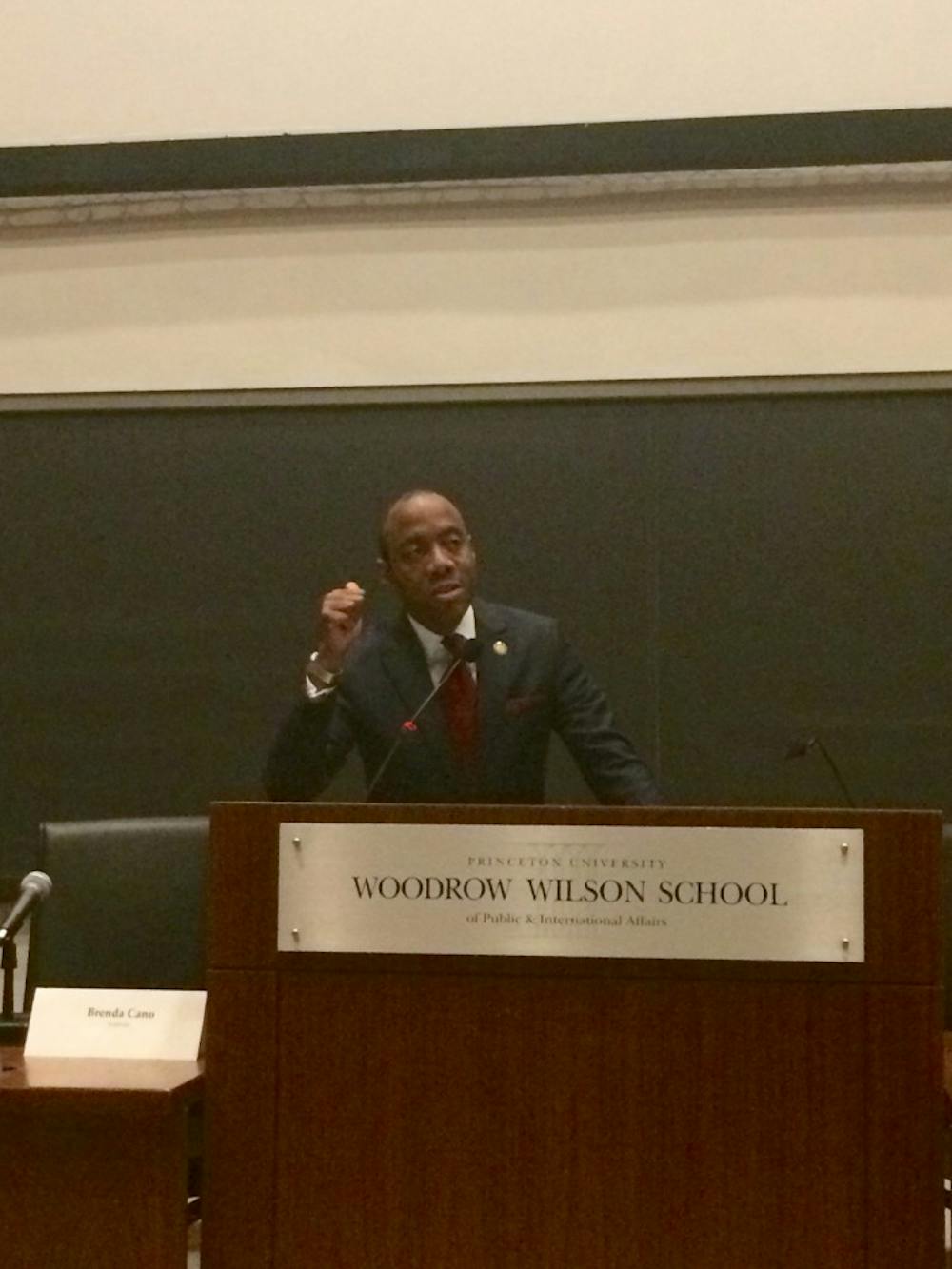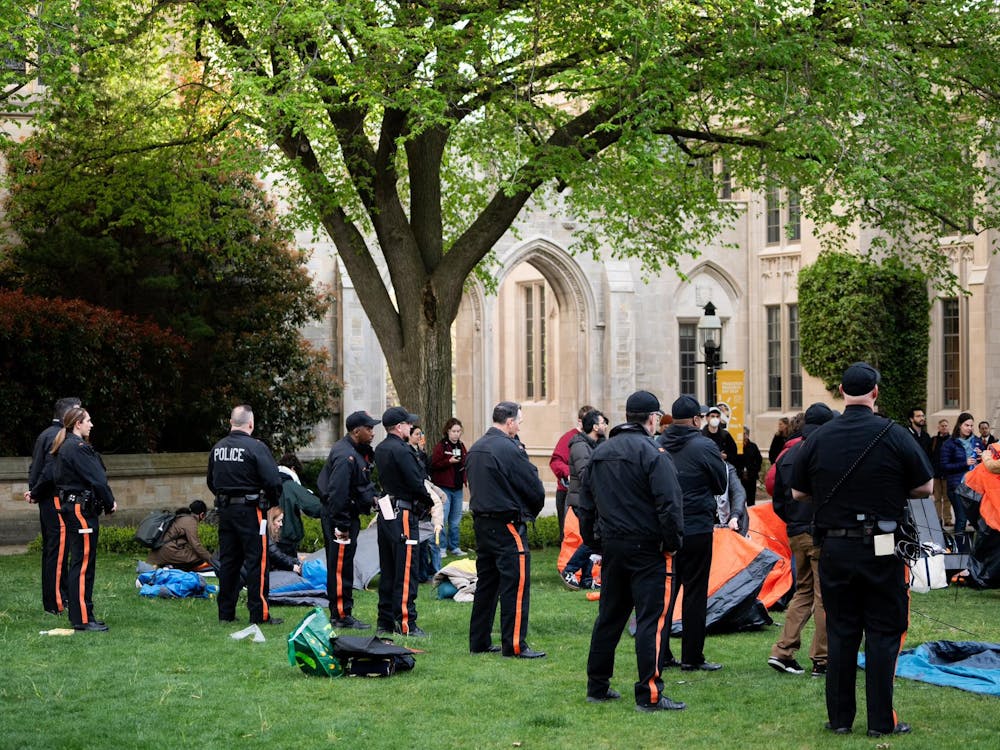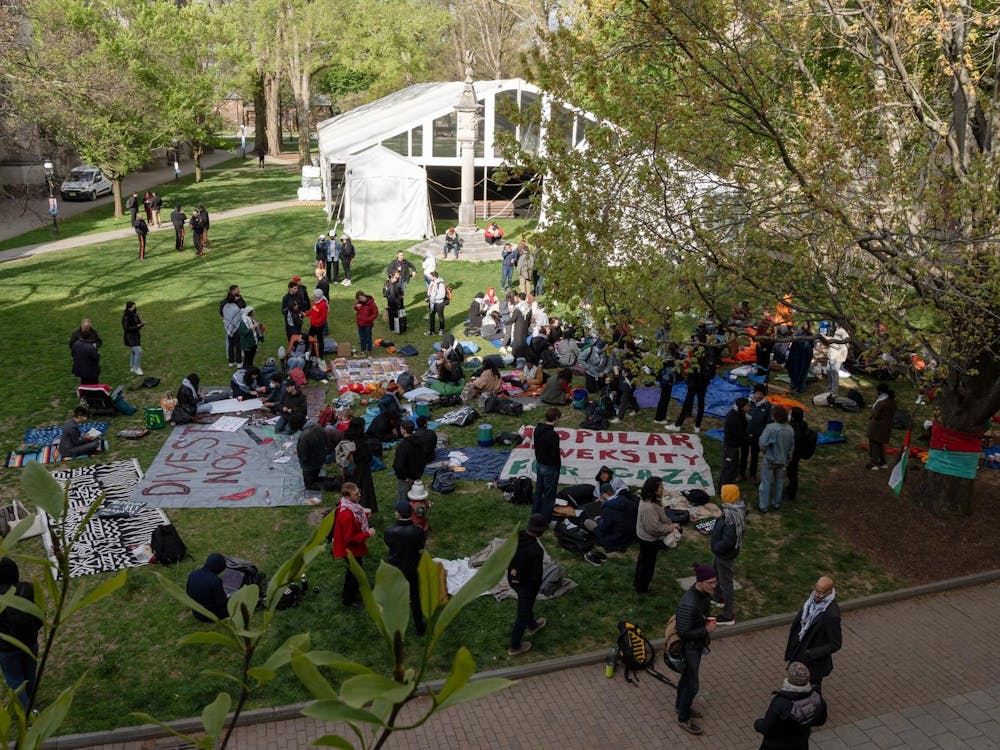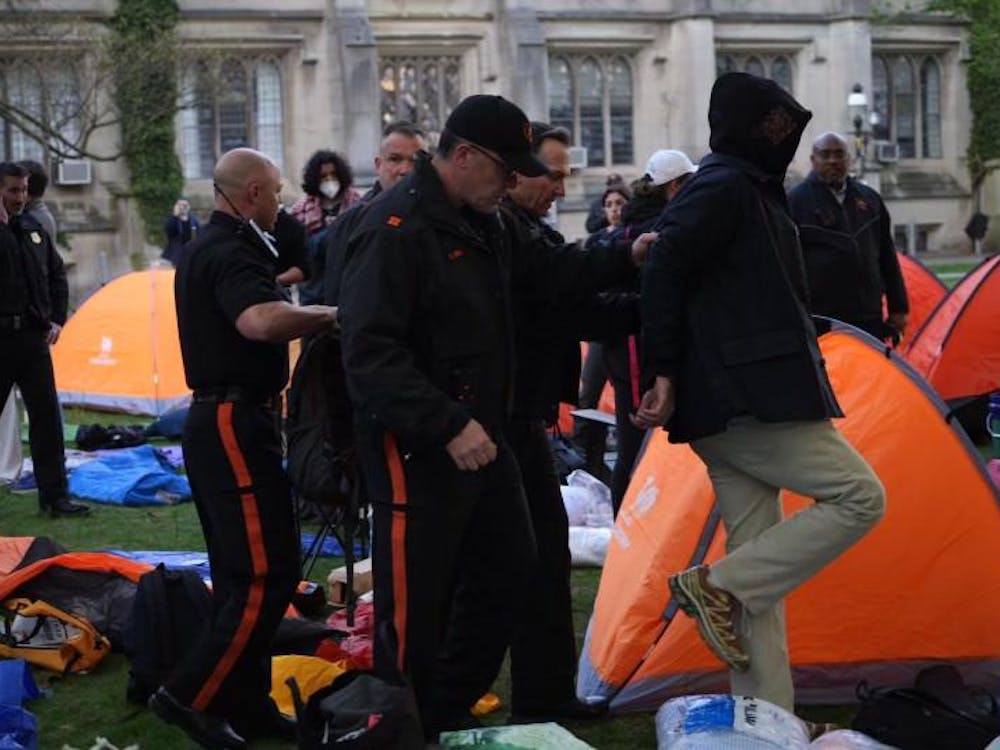On April 29, NAACP president Cornell William Brooks gave the keynote address at the Princeton Prize Symposium on Race. Each year, as part of the conference, the Princeton Prize in Race Relations honors high school students from around the country whose work has had a positive effect on issues surrounding race in their hometown communities.
Titled “A Woke Democracy,” Brooks’ address was a stark and powerful rallying call aimed at younger generations in America.
Speaking to an audience of approximately 80 people, including the 21 high school award-winners, Brooks stressed that it is necessary that Americans rise up to fight against racism, misogyny, Islamophobia, LGBTQ+ discrimination, voter suppression, injustice towards those with criminal records, anti-Semitism, and ableist and ageist systems that are crippling American democracy in 2017.
“We cannot underestimate what is happening in this country,” Brooks said. “You cannot be overly sensitive to the dehumanization of your fellow citizens.”
Brooks asked the audience to consider that in the most recent year of the FBI’s survey on hate crimes, hate crimes against African Americans increased by more than 5 percent, against Jews by more than 6 percent, and against Muslims by 67 percent. He also noted that since election day, over 1000 hate crimes have been committed in K-12 schools.
“This is a moment in our democracy where so many feel as though their skin is a sin. So many feel that their orientation is an indictment, so many feel that their ethnicity is a curse because our fellow citizens have lost their hearts and their minds,” Brooks said.
Referencing Trump’s appointments of Steve Bannon and Jeff Sessions to his administration, and their racist legacies, Brooks said, “It is a moment where we have to call it for what it is, and it is wrong.”
One of the high school award-winners was Michael Brown, a junior from Lamar High School in Houston, Tex. Brown won the prize for his creation of a diversity club that fights racism and citizen apathy and works to improve cultural competency.
Brown noted that the conference allowed him to experience different forms of activism that he wouldn’t have witnessed otherwise.
“Reflecting on the intersections of everyone’s work, we’re all doing this for the same reasons,” Brown said.
“This is not something that one person can do on their own,” Brown explained. “We have to collaborate together.”
According to Brooks, millennials have made tremendous progress in combatting the hate underlying America’s political and legal systems. He stated that young people have helped make gains in the areas of criminal justice reform, voting rights, and the fight against hate crimes. Brooks explained that in New Jersey, students from Rutgers and the University have played a crucial role in campaigns that led to an act that banned questions about criminal records from employment applications.

Brook also spoke about the current realities of racialized voter suppression efforts. He referenced an instance in Alabama in 2015 in which the state legislature passed a law requiring voters to present state-issued photo IDs, then closed almost all Department of Motor Vehicles offices in Alabama’s majority-black counties.
He also stressed to audience members that any attempt to repress any community’s right to vote because of race is also an attempt to repress young people’s right to vote.
Brooks told audience members that the NAACP is one of the largest organizations for young people in America. Outside of the church, there isn’t a larger organization for young people, he said. Brooks also said the NAACP is one of the largest organizations working to protect the environment, citing its critical role in responding to the water crisis in Flint, Mich.
In an interview after his address, Brooks highlighted the ways that University students can work to foster a more “woke” democracy on our own campus.
Again, he recounted how University students were pivotal in New Jersey criminal justice reforms of 2015, and he said that a University chapter of the NAACP could play an enormous role in helping University students enact future change. Brooks noted that the University does not currently have its own chapter of the NAACP, but he would want one to exist.
Yale, Harvard, Columbia, Penn, Brown, and Dartmouth all have their own student NAACP chapters.
Issues pertaining to diversity on campus, the New Jersey education system, and local police can all be challenged with the help of a University chapter of the NAACP, Brooks said.
“You start a chapter here, and Princeton priorities will be the focus of your work,” Brooks said.
Brooks gave the keynote address on April 29 at 11 a.m. in the Dodds Auditorium of Robertson Hall. The Princeton Prize in Race Relations has been awarded yearly since 2003.









